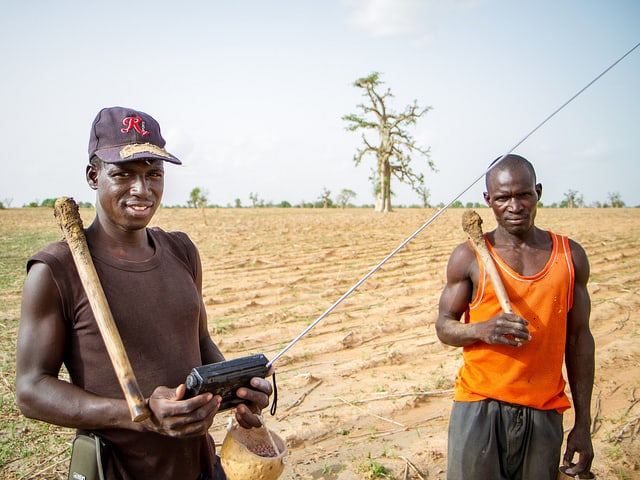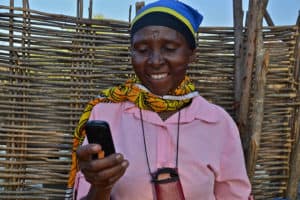Consuming information: Agriculture at the crossroads of sustainability
Extension officers, radio, and mobile phones remain crucial for the farmers to access and discover agricultural information.

Photo by Francesco Fiondella
The agriculture sector is a key driver of social and economic development in countries, like Tanzania.
In spite of this, smallholder farmers across the developing world are facing substantial challenges to gain access to information, technical knowledge, and markets, keeping these farmers locked in poverty.
This lack of access is among the principal obstacles keeping smallholder farmers from improving their output, growing their income and improving food security.
The agriculture sector needs to get smart and use innovative information technology to tackle challenges resulting from information asymmetry.
Agriculture in Tanzania is a major contributor to the economy, accounting for about USD 13.9bn of the country’s GDP, equivalent to 31.4 percent (the United Republic of Tanzania, 2015).
The agriculture sector employs 67 percent of the population and provides livelihood to more than 70 percent and contributes about 95 percent to the national food requirements, according to the Ministry of Agriculture, Land and Fisheries (MALF).
The uptake of new information and communication technologies (ICTs), in the form of the internet and especially mobile phone and radio, is happening very quickly.
In Tanzania, mobile phone users were estimated to be 40.8 million in 2017, a stark increase from 27.62 million in 2012 (TCRA, 2017). By growth rate of 2.7 percent, the population of Tanzania was over 51 million people in 2017. From this, we can speculate that about 80 percent of the Tanzanian population have access to a mobile phone.
The mobile phone is an innovative device with the potential to be the best way to deliver agricultural information to smallholder farmers.

Photo by Cecilia Schubert
Extension officers can share knowledge among themselves and with farmers, enabling farmers to access professional counseling over short message services (SMS).
Nevertheless, the cost of employing mobile solutions is still high and only a number of mobile operators have successfully targeted this market. For instance, in Tanzania there are approximately seven mobile operators but only two, Tigo Kilimo by Tigo and Kilimo Klub by Vodacom, offer such services.
Radio is another way to access information and knowledge on farming issues. About over 5.7 million people (61.6%) have a radio (Tanzania Basic Demographic and Social Economic Profile, 2012).
It is a proper channel for accessing information and knowledge for a large number of farmers in the rural areas probably due to its oral nature, low cost and easy accessibility.
As most mobile phones have integrated FM radio, farmers can listen to the radio and receive SMS on the same device. Radio programs that are produced in collaboration with agricultural extension services and broadcast are using a “listen, discuss, act” form of audience participation.
For instance, Farm Radio International (Canada) and Tanzania Broadcasting Corporation (TBC) help farmers to access and discover information through radio programs.
To ensure the right data gets to the right user, training can be conducted for extension officers to empower them with the skills to manage the mobile platform.
Then, workshop and training led by extension officers of the Ministry of Agriculture to groups of farmers can be held to increase farmers’ awareness on the need to make use of their mobile phone and radio to access farm expertise.
In Tanzania, there are seven agriculture research zones used in the production of several crops.
Once farmers have registered and the databases are developed, farmers can receive information in the form of SMS. Extension officers can easily access this information of the respective zones through their laptops.
Through this, extension officers will have information at their tips which they can send through a cellular network to as many farmers as possible and receive feedback from the farmers.
The right linkages can be obtained from these consolidated information maps, which are sources of farmer’s information.
Extension officers, radio, and mobile phone remain crucial for the farmers to access and discover agricultural information.
Juma Kapiligi
Tanzania
Blog Competition Entry
This article is published as a part of our publicly open big data blog competition. If you have enjoyed this reading this entry, you can vote by liking, commenting or sharing.




